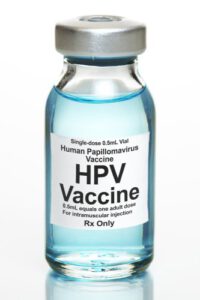Papillomavirus (HPV) is a collective name for a group of viruses with more than 100 strains, of which at least 40 can transfer during oral, anal, and or vaginal intercourse.
Despite the stigma of sexually transmitted infections, statistics show that most sexually active people will be exposed to the virus during their lifetime, mainly because of the ease of disease (skin-to-skin contact). Most will not be aware that they have been infected.
Despite this, most strains do not cause medical problems, but a small group of them can cause cancer and or warts (condyloma).
How can you get infected?
Truth be told, quite easily! It is passed from sexual contact with someone who has the virus, men and women can be infected on their genitals, the entire groin area, anus, and in some cases, even the mouth and throat.
What are the ways that can help protect against HPV infection?
√ Vaccination
In Israel, there are 3 types of vaccines that can protect against most of the currently known strains that cause condyloma– which can cause changes in the cells and can become cancerous. The vaccine has been available for years.
Beginning in 2013, the Ministry of Health began vaccinating middle school students to reach the population that has not yet begun to be sexually active in order to maximize vaccine effectiveness.
In 2018, the latest vaccine called Gardasil 9 was released in Israel – a vaccine that protects against nine strains of the papillomavirus: 6, 11, 16, 18 in addition to 31, 33, 45, 52, 58 that mainly are involved in cervical cancer
√ Limiting sexual partners
limiting the number of sexual partners helps to reduce the chance of being exposed.
Test yourself for STDs (provided with your kupat holim), and ask your sexual partners to do the same.
Q: If I have already been exposed to the virus, can the vaccine protect against the strains I have been told to?
A: No. But the vaccine can help and protect against other strains.
√ Use a condom during any sexual contact
Although the condom does not protect against infected exposed areas, it does help reduce infection. Therefore, it is also essential to use it throughout the sexual act and during anal and oral intercourse.

[ In 2014, an article published by the England Journal of Medicine stated that condom use helps prevent sexually transmitted infections, including HPV.]
√ Lead a healthy lifestyle
a healthy diet rich in vitamins, avoiding cigarettes and drugs, and exercising regularly helps strengthen the immune system, which is responsible, among other things, for protection against viruses and infections.
√ Every woman must perform a Pap test routinely
a Pap test helps check the condition of the cervix and indicates changes in cells due to exposure to the virus.
There aren’t always early signs of a problem (bleeding, pain, etc.), so it is essential to have routine check-ups with a gynecologist.
Q: If I get vaccinated, should I continue to perform Pap tests routinely?
A: Yes! The vaccine does not protect at 100%, so continue to get tested!
What are the symptoms of the virus [or how do you know if you have been infected?]
Most of the time, those exposed to the virus don’t know it because our immune system can deal with the virus.
If your immune system cannot fight the virus, you will know that you were exposed to the virus when you see it.
→ Condyloma – warts in the groin area (may appear in other places on the body), including the genitals.
→ Pre-cancerous and cancerous changes in the genitals – the most common is cervical cancer.
Since, for the most part, people do not see or feel any particular symptoms, every woman should undergo an annual Pap test (at older ages, the urgency of the test decreases).
Is Papillomavirus (HPV) Dangerous?
Like any virus, if we do not take care of it and/or see a doctor, the virus can become dangerous.
With the papillomavirus, the danger from the virus is cancer, with the highest incidence as mentioned, is found in women in the cervix, but can appear in men in the anus, testicles, and more.

Dr. Guy Gutman
A senior physician at the Clalit Health Women’s Center, a specialist in gynecology and cervical medicine, with 20 years of successful experience in infertility, obstetrics, and gynecology.